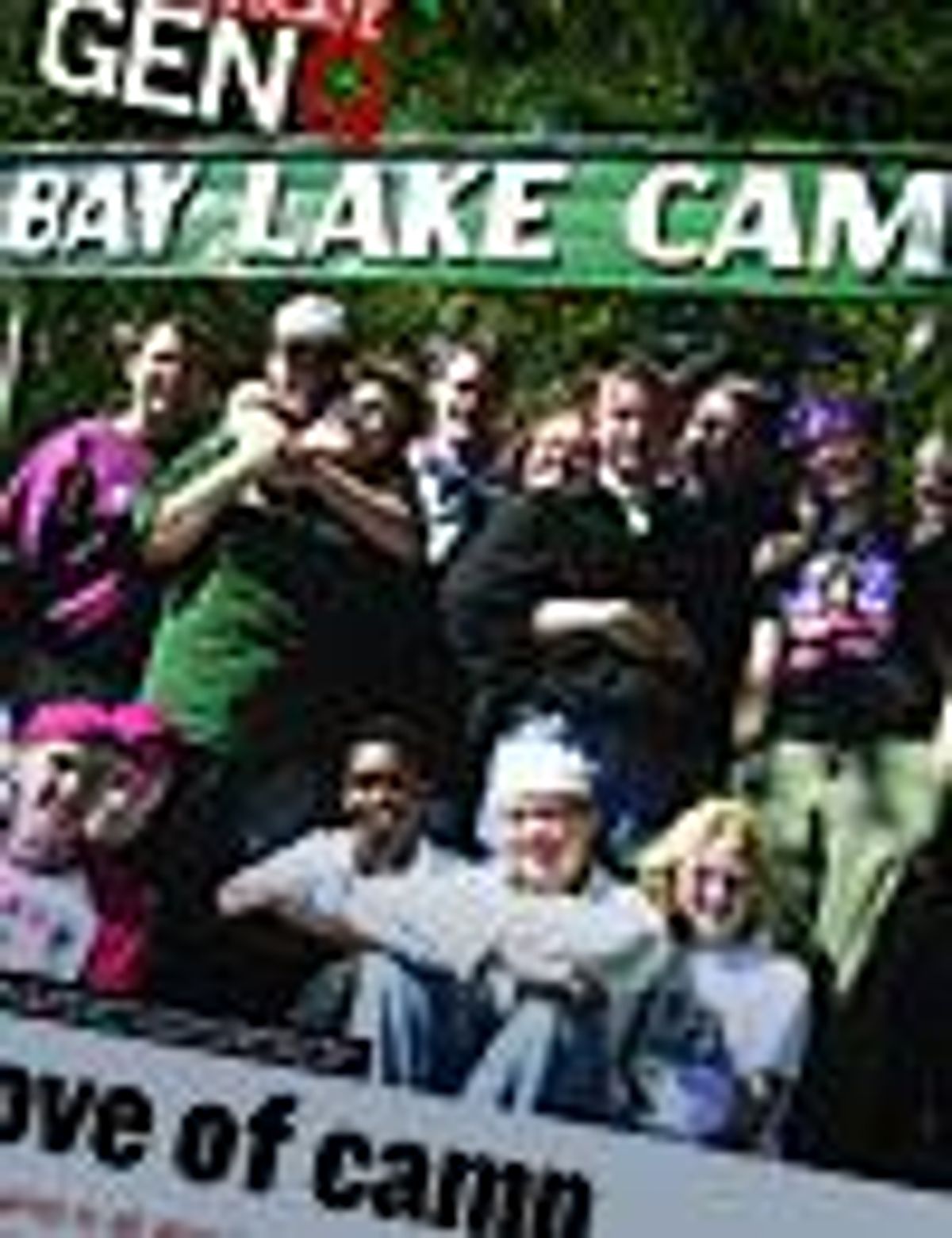All Rights reserved
By continuing to use our site, you agree to our Private Policy and Terms of Use.
As a child in Queens, N.Y., Star Robinson was shy, quiet, and withdrawn. "In group discussions I wouldn't ever say anything. I'd simply be off on the side observing."
All that changed after Robinson attended Youth Enrichment Services' summer camp in New Jersey, a nine-year-old project sponsored by New York City's Lesbian, Gay, Bisexual, and Transgender Community Center. Now 21, Robinson, who eschews labels but uses the "ze" pronoun, has worked as a peer educator and family group leader for YES, has attended community board meetings, and is pursuing a position as a community organizer with FIERCE! a New York City LGBT activism group.
"Young people who attend camp have called it a life-changing experience," says Judy Yu, YES associate director of youth services. "They become connected to a community, and they often leave camp with a real sense of empowerment."
While there are camps for LGBT adults and more than two dozen camps for children of LGBT parents in the United States, there are fewer than 10 camp programs for LGBT youths. The numbers are growing, though--recently the Triangle Foundation of Detroit announced plans for a 2006 summer camp for LGBT and allied youths, joining cities such as New York, Indianapolis, Philadelphia, and Seattle that offer similar programs. The cost, capacity, age range, and focus vary among programs: YES has strong safe-sex and HIV/AIDS-related workshops; the GSA Activist Camps in the California cities of Santa Monica, Oakland, and Fresno feature community-building, skill-building, and political education; and there's a Bible camp in Minnesota for LGBT Christian youths [see sidebar]. But no matter their specific curricula, all the camps prominently feature a leadership training component in their program.
Trending stories
Perhaps most important of all, the camps allow LGBT young people to come together to experience an American ritual most other youths take for granted. "Some youths deal with being excluded on a day-to-day basis," says 21-year-old Cris Benjamin, a genderqueer from Bronx, N.Y. "When they go to camp they learn to love themselves as well as know what it feels like to be part of a community that is more about including instead of excluding."
Indeed, the camps are simply like any other summer camp. "Daily activities differ," says Christiana "Kimmi" Ramnine, a 16-year-old lesbian from Brooklyn, N.Y., "from breakout groups like learning how to make paper to learning how to knit. There's a lake to swim in, candles to make. Archery, canoeing, rock-climbing, basketball, volleyball. There's a campfire with s'mores, a talent show, a night hike."
What sets many of the gay camps apart from mainstream camps are workshops about HIV/AIDS, body image, and queer history, along with dances and balls for those in the voguing scene.
Most youths who attend these camps are already out to their families, and some have used the camp experience to come out. But the idea of gay camp has sometimes brought out old stereotypes about LGBT people. "I had a friend who was shocked to learn of gay camp," says Robinson. "The person was religious and was like, 'Why are you going? What do they do there?' They made me feel uncomfortable. They felt like staying with gay people for a week would be a bad influence on me."
In spite of such beliefs the camps continue to flourish, and the results speak for themselves. Past participants have gone on to win scholarships and awards, meet with public officials, and become community leaders and organizers in organizations such as Public Allies, local LGBT centers, and the Gay, Lesbian, and Straight Education Network.
Slowly but surely, the camps have helped to change some minds. "I can honestly say that it has changed my life," says Ramnine. "Most of my straight peers want to go to [LGBT] camp as well--especially after seeing the pictures."


















































































Here's our dream all-queer cast for 'The White Lotus' season 4